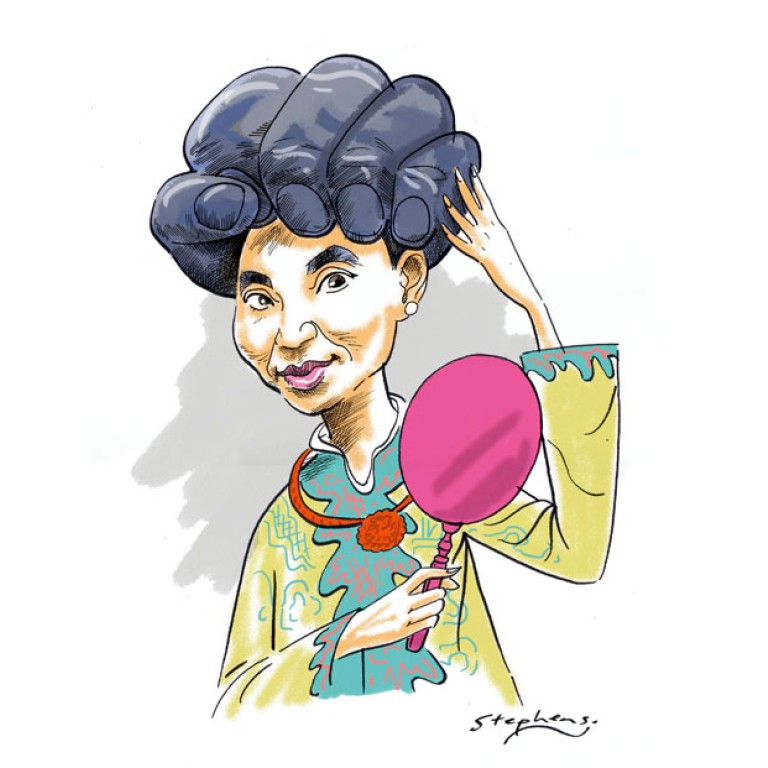
The tragedy of Gu Kailai
Chang Ping says the details of Gu Kailai's life revealed at her husband's trial showed her to be a woman who railed against being a submissive wife yet loved the privileges it brought her
When China was in the grip of Peng Liyuan fever, back in March, Gu Kailai was already serving time for murder. I don't know whether Gu read any of the glowing media reports about the new first lady and, if she did, what she thought of them. If her husband, Bo Xilai , really did have his eye on the top ranks of Chinese politics, Gu must have once coveted the role now taken by Peng, and believed she could have played it better.
Sadly for her, Bo's downfall meant the end of such hopes; her public image has been dragged through the mud.
Gu was the "star" of the five-day "trial of the century" in Jinan , Shandong . The court that sat to hear corruption charges against Bo was told that Gu abused her husband's influence and solicited bribes without his knowledge; had an affair with her husband's subordinate amid a web of entangled business relationships with other men; and murdered one of them but failed to bury the evidence, thus ruining Bo's political career.
No wonder a veteran political analyst quipped that the talk among high-ranking party cadres and government officials this week must be: "Never marry a woman like Gu Kailai."
It’s the women we ought to caution: if you are a woman like Gu Kailai, do not marry into power
But how could a man tell if the woman he wants to marry will turn out one day to be someone who takes bribes, is unfaithful and commits murder? It's possible that a woman who's capable of such deeds would be egocentric, inconsiderate and unsupportive - in short, a woman who does not know her place. Perhaps it's the women we ought to caution: if you are a woman like Gu Kailai, do not marry into power.
China's rich and powerful wield so much influence that abuse is inevitable; not just inevitable, in fact, but necessary to get anywhere.
But this struggle for power is a man's game; a woman, no matter how ambitious, has to be content with petty politics. Of course, there's still plenty to fight over, but all the wealth and privilege a woman may have flows from men's largesse. A women's world has its own rules, and a woman's place is to support her man in his fight to win power and riches. If she can't contribute ideas and strategies towards that goal, she can at least pledge her obedience and loyalty as a wife and provide him with a safe and happy home.
Gu railed against playing the wife's role but could not give up the privileges it accorded her - thus laying the seeds of her tragedy. The case files of the Communist Party's Central Commission for Discipline Inspection are full of corrupt top officials who have slept around. Without exception, they kept a mistress or two; and, almost without exception, their wives chose to tolerate it. But when Gu first found out about Bo's infidelity, the court heard, she took off to England in anger with their son, who enrolled in school there. The talk was that she even found new love.
As a pioneering lawyer in modern China, Gu could have been her own woman, forging an independent career that owed nothing to others. But she didn't. The lure of unlimited power was too great.
In the early days, the law firms she founded prospered in part because of her husband's patronage. When she needed money to pay for their son's studies in England and their living expenses there, she looked to a few business friends, including Tang Xiaolin and Xu Ming , for help. And they helped because her husband was Bo Xilai.
When Bo's political career took off, Gu chose to return to China to play the happy couple with her husband for the Chinese public. Behind closed doors, Bo continued to stray even as he conducted his "sing red, strike black" campaign, while Gu continued to use her husband's influence to solicit bribes while she sought solace with other men. Sadly, even her affairs were conducted under the protection of her husband's patronage.
Gu might have asked herself if her lovers truly desired her, or her husband's power. If the answer was "both", then we cannot be surprised by what came next. According to Bo's testimony, Wang Lijun fled to the US consulate in part because of his untenable position as both Bo's subordinate and rival in love. "He knows what my personality is like … that's the real reason for his defection." Bo was also scathing of Xu Ming, the tycoon said to be extremely close to Gu.
During Bo's trial, Gu continued to play dual roles. On the one hand, she chose not to be the "good wife" who stood by her man and provided testimony damaging to Bo's defence, perhaps in the hope of getting early parole. But, on the other hand, she was still appealing to a higher power - only now she looked not to a husband for help, but the judiciary and the state.
Media reports have said that Gu held two identity cards: one stated her name simply to be "Kailai"; the other gave her name as "Bogu Kailai".
In the first, she dropped even her father's surname, opting to use only her given name. In the second, she chose to include both her father's and her husband's names. Both decisions are unusual in mainland China.
It's worth noting that in official media reports, she is "Bogu Kailai", never "Kailai". This is the fate of a woman who chose to wed herself to a system that encourages power without constraint.
